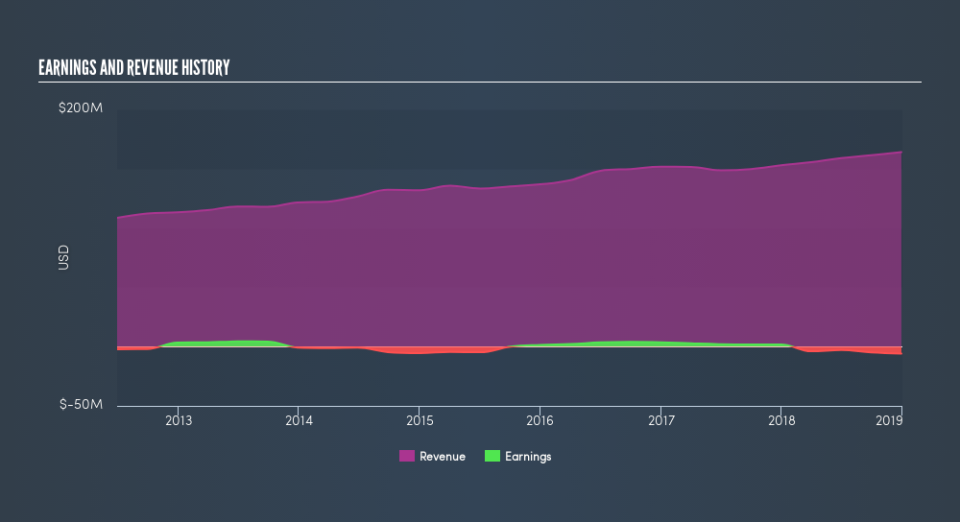Is Continental Materials Corporation (NYSEMKT:CUO) A Volatile Stock?

If you own shares in Continental Materials Corporation (NYSEMKT:CUO) then it's worth thinking about how it contributes to the volatility of your portfolio, overall. In finance, Beta is a measure of volatility. Modern finance theory considers volatility to be a measure of risk, and there are two main types of price volatility. The first type is company specific volatility. Investors use diversification across uncorrelated stocks to reduce this kind of price volatility across the portfolio. The second sort is caused by the natural volatility of markets, overall. For example, certain macroeconomic events will impact (virtually) all stocks on the market.
Some stocks see their prices move in concert with the market. Others tend towards stronger, gentler or unrelated price movements. Some investors use beta as a measure of how much a certain stock is impacted by market risk (volatility). While we should keep in mind that Warren Buffett has cautioned that 'Volatility is far from synonymous with risk', beta is still a useful factor to consider. To make good use of it you must first know that the beta of the overall market is one. A stock with a beta below one is either less volatile than the market, or more volatile but not corellated with the overall market. In comparison a stock with a beta of over one tends to be move in a similar direction to the market in the long term, but with greater changes in price.
View our latest analysis for Continental Materials
What we can learn from CUO's beta value
Given that it has a beta of 0.90, we can surmise that the Continental Materials share price has not been strongly impacted by broader market volatility (over the last 5 years). This means that -- if history is a guide -- buying the stock would reduce the impact of overall market volatility in many portfolios (depending on the beta of the portfolio, of course). Share price volatility is well worth considering, but most long term investors consider the history of revenue and earnings growth to be more important. Take a look at how Continental Materials fares in that regard, below.
Does CUO's size influence the expected beta?
With a market capitalisation of US$31m, Continental Materials is a very small company by global standards. It is quite likely to be unknown to most investors. Companies with market capitalisations around this size often show poor correlation with the broader market because market volatility is overshadowed by company specific events, or other factors. It's worth checking to see how often shares are traded, because very small companies with very low beta values are often only thinly traded.
What this means for you:
The Continental Materials doesn't usually show much sensitivity to the broader market. This could be for a variety of reasons. Typically, smaller companies have a low beta if their share price tends to move a lot due to company specific developments. Alternatively, an strong dividend payer might move less than the market because investors are valuing it for its income stream. This article aims to educate investors about beta values, but it's well worth looking at important company-specific fundamentals such as Continental Materials’s financial health and performance track record. I highly recommend you dive deeper by considering the following:
Future Outlook: What are well-informed industry analysts predicting for CUO’s future growth? Take a look at our free research report of analyst consensus for CUO’s outlook.
Past Track Record: Has CUO been consistently performing well irrespective of the ups and downs in the market? Go into more detail in the past performance analysis and take a look at the free visual representations of CUO's historicals for more clarity.
Other Interesting Stocks: It's worth checking to see how CUO measures up against other companies on valuation. You could start with this free list of prospective options.
We aim to bring you long-term focused research analysis driven by fundamental data. Note that our analysis may not factor in the latest price-sensitive company announcements or qualitative material.
If you spot an error that warrants correction, please contact the editor at editorial-team@simplywallst.com. This article by Simply Wall St is general in nature. It does not constitute a recommendation to buy or sell any stock, and does not take account of your objectives, or your financial situation. Simply Wall St has no position in the stocks mentioned. Thank you for reading.

 Yahoo Finance
Yahoo Finance 
